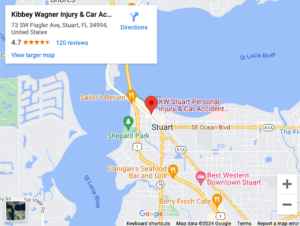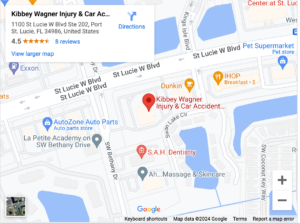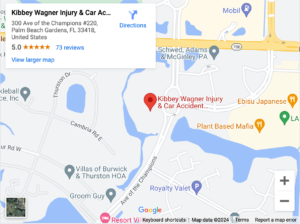
A claim and a lawsuit aren’t the same, despite the fact that many people use these terms interchangeably. Although all lawsuits are based on claims, not all claims mature into lawsuits.
If someone injured you through some type of misconduct, typically negligence, you probably have a personal injury claim already. That doesn’t mean you have a personal injury lawsuit.
What is a Claim?

The term “claim” has two meanings in personal injury law. Academically, the term refers to an abstract legal right to compensation that arises when someone wrongfully injures you. At that point, you have a claim, whether you know it or not.
Another meaning of the term claim is an informal demand for compensation that you issue to someone legally responsible for paying it. The receiving party might be a defendant, but it is more likely to be an insurance company.
A written claim should include the following information:
- A statement of why you deserve compensation, and
- A demand for compensation.
If the defendant or the insurance company refuses to resolve your claim through private settlement, you can take your claim to court.
Typical Elements of a Personal Injury Claim
Most personal injury claims require the injured claimant to prove fault.
The four elements of a fault-based personal injury claim are:
- Duty: The defendant owed a duty of care to the claimant. This duty is almost always present, but it can be very demanding in (for example) a medical malpractice case.
- Breach: The defendant breached their duty of care through action or inaction. This breach of duty constitutes negligence (or, in some cases, a more serious form of misconduct such as an intentional assault).
- Damages: The claimant suffered losses that money damages can compensate for. Keep in mind that Florida law considers money damages appropriate to remedy psychological harm that arises from a physical injury.
- Causation: The defendant’s misconduct caused the claimant’s damages.
In Florida, product liability claims, workers’ compensation claims, and car accidents without serious injuries are all “no-fault” claims. The elements of a no-fault claim depend on the particular claim, and they are different from the elements listed above.
What Is a Lawsuit?
A lawsuit is a way of enforcing your claim or, put another way, turning an abstract claim into money. A lawsuit occurs when you bring a claim to a court for adjudication. The process culminates with a court hearing known as a trial, in which the court resolves the dispute by imposing a solution on the parties. A lawsuit proceeds through the following stages.
Stage 1: Complaint, Service of Process, and Answer: The Initial Exchange
The complainant (known as the “plaintiff”) starts off the lawsuit by filing a formal Complaint with the court. The defendant responds by filing an Answer.
Stage 2: The Pre-Trial Discovery Process
Pre-trial discovery is a court-supervised process by which each party collects evidence that is in the other party’s possession. Sometimes a party might demand evidence in possession of a third party.
The following four forms of evidence are prevalent:
- Depositions: Out-of-court, under-oath testimony by live witnesses.
- Interrogatories: Written answers to questions from the other party. The answers must be truthful or risk perjury liability.
- Requests for Evidence: This can include requests for copies of documents, requests for access to physical evidence, etc.
- Requests for Admissions: Requests for admissions to facts that the requesting party doesn’t want to waste time proving. This simplifies a trial.
A court can order a party to cooperate with the discovery process.
Stage 3: Pleadings and Motions
Pleadings and motions are formal ways that parties ask the court to do something. A defendant might, for example, file a Motion to Dismiss asking the court to terminate the lawsuit for lack of evidence.
Stage 4: Trial
A trial involves at least one hearing. The parties will call witnesses, cross-examine each other’s witnesses, present evidence, and make arguments. Usually, the court will impose a solution on the parties with the assistance of a jury.
Stage 5: Appeal
In a minority of cases, a party dissatisfied with an adverse outcome will appeal a verdict. You must have grounds to file an appeal.
When Claims Turn into Lawsuits
Whether plaintiffs or defendants, most parties prefer to settle a claim out of court. An out-of-court settlement is usually quicker, easier, and less expensive. Nevertheless, plaintiffs often file lawsuits for strategic reasons, even when they still hope to resolve their claim through settlement.
The primary reasons why plaintiffs file lawsuits are:
- To gain bargaining power by proving to the defendant that you “mean business”;
- To gain access to the pre-trial discovery process so you can demand evidence that is in the defendant’s possession; or
- To beat the statute of limitations deadline for filing a lawsuit.
Even when a party files a lawsuit, the case is eventually settled most of the time. A plaintiff can withdraw a lawsuit at any time before a final verdict, and the defendant will demand such withdrawal as a condition of settlement.
Alternative Dispute Resolution (ADR)
Most claims are resolved using one of the following three means of ADR:
- Negotiation: Two-party negotiations settle more than half of all personal injury claims.
- Mediation: In mediation, the parties recruit a neutral third party to help them settle their dispute amicably. Courts often offer mediators.
- Arbitration: An arbitrator is a “rent-a-judge.” Parties typically select arbitrators for their expertise in the subject matter of the dispute.
Courts strongly encourage parties to engage in ADR because it reduces the court’s workload.
Do You Need a Personal Injury Lawyer?
It is unlikely that you will be able to resolve a large claim or a lawsuit without a lawyer. The irony here is that the better your lawyer’s reputation for winning in court, the more likely the opposing party is to prefer a settlement. If you hire a personal injury lawyer, you will owe nothing in legal fees unless you win your claim.
For help after any accident, contact us today to schedule a free consultation with a Stuart personal injury lawyer. Contact Kibbey Wagner Injury & Car Accident Lawyers at (772) 444-7000 to schedule a free consultation.



